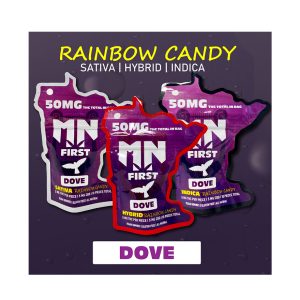**1. Definition and Types of Experience:**
– Experience is defined as direct observation or participation in events for knowledge.
– It encompasses conscious events like perception, memory, emotion, desire, and thought.
– Types of experiences include perceptual, episodic memory, imaginative, thinking, pleasure, and emotional experiences.
– Phenomenology studies the structure and contents of experience, while epistemology focuses on sensory experiences and knowledge acquisition.
– Disciplinary perspectives on experience include psychology, metaphysics, and the role of experience in scientific theory evaluation.
**2. Debates and Theories on Experience:**
– Scholars debate the intentional nature of experiences and the existence of non-conceptual experiences.
– Transparency in experiences, spatial-temporal awareness, and the distinction between sensory and other types of consciousness are debated concepts.
– Intentionality in experiences is a key aspect, with debates on representational components and mystical states as counterexamples.
– Conceptuality, the myth of the given, and whether all experiences have conceptual contents are topics of discussion.
– Various philosophers disagree on the transparency thesis and the subjective character of experiences based on their contents.
**3. Types of Thinking:**
– Concept formation involves learning common features of examples, categorizing information, and developing cognitive abilities.
– Problem solving aims to find solutions through logical thinking and creativity, enhancing cognitive skills and adaptability.
– Judgment and decision making involve selecting the best course of action, considering alternatives, cognitive biases, and emotions.
– Reasoning includes drawing conclusions from premises through logical inference, enhancing critical thinking and analytical skills.
– Thinking can be categorized into theoretical contemplation and practical deliberation, encompassing various cognitive processes.
**4. Perception, Episodic Memory, and Imagination:**
– Perceptual experience involves immediate consciousness of external things through sensory stimuli.
– Episodic memory allows reliving past events consciously, providing information about the past and its role in memory.
– Imaginative experience presents objects without reflecting reality, serving epistemological functions by representing possibilities.
– Perception can include illusions and hallucinations, offering direct contact with perceived objects.
**5. Missing Content:**
– (Content is missing and can be added based on the specific focus or theme desired for this section.)
– (Another missing content section that can be filled with relevant information to complete the comprehensive grouping of concepts.)
Experience refers to conscious events in general, more specifically to perceptions, or to the practical knowledge and familiarity that is produced by these processes. Understood as a conscious event in the widest sense, experience involves a subject to which various items are presented. In this sense, seeing a yellow bird on a branch presents the subject with the objects "bird" and "branch", the relation between them and the property "yellow". Unreal items may be included as well, which happens when experiencing hallucinations or dreams. When understood in a more restricted sense, only sensory consciousness counts as experience. In this sense, experience is usually identified with perception and contrasted with other types of conscious events, like thinking or imagining. In a slightly different sense, experience refers not to the conscious events themselves but to the practical knowledge and familiarity they produce. Hence, it is important that direct perceptual contact with the external world is the source of knowledge. So an experienced hiker is someone who has actually lived through many hikes, not someone who merely read many books about hiking. This is associated both with recurrent past acquaintance and the abilities learned through them.
Many scholarly debates on the nature of experience focus on experience as conscious event, either in the wide or the more restricted sense. One important topic in this field is the question of whether all experiences are intentional, i.e. are directed at objects different from themselves. Another debate focuses on the question of whether there are non-conceptual experiences and, if so, what role they could play in justifying beliefs. Some theorists claim that experiences are transparent, meaning that what an experience feels like only depends on the contents presented in this experience. Other theorists reject this claim by pointing out that what matters is not just what is presented but also how it is presented.
A great variety of types of experiences is discussed in the academic literature. Perceptual experiences, for example, represent the external world through stimuli registered and transmitted by the senses. The experience of episodic memory, on the other hand, involves reliving a past event one experienced before. In imaginative experience, objects are presented without aiming to show how things actually are. The experience of thinking involves mental representations and the processing of information, in which ideas or propositions are entertained, judged or connected. Pleasure refers to experience that feels good. It is closely related to emotional experience, which has additionally evaluative, physiological and behavioral components. Moods are similar to emotions, with one key difference being that they lack a specific object found in emotions. Conscious desires involve the experience of wanting something. They play a central role in the experience of agency, in which intentions are formed, courses of action are planned, and decisions are taken and realized. Non-ordinary experience refers to rare experiences that significantly differ from the experience in the ordinary waking state, like religious experiences, out-of-body experiences or near-death experiences.
Experience is discussed in various disciplines. Phenomenology is the science of the structure and contents of experience. It uses different methods, like epoché or eidetic variation. Sensory experience is of special interest to epistemology. An important traditional discussion in this field concerns whether all knowledge is based on sensory experience, as empiricists claim, or not, as rationalists contend. This is closely related to the role of experience in science, in which experience is said to act as a neutral arbiter between competing theories. In metaphysics, experience is involved in the mind–body problem and the hard problem of consciousness, both of which try to explain the relation between matter and experience. In psychology, some theorists hold that all concepts are learned from experience while others argue that some concepts are innate.
English
Etymology
From Middle English experience, from Old French, from Latin experientia (“a trial, proof, experiment, experimental knowledge, experience”), from experiens, present participle of experiri (“to try, put to the test, undertake, undergo”), from ex (“out”) + peritus (“experienced, expert”), past participle of *periri (“to go through”); see expert and peril.





